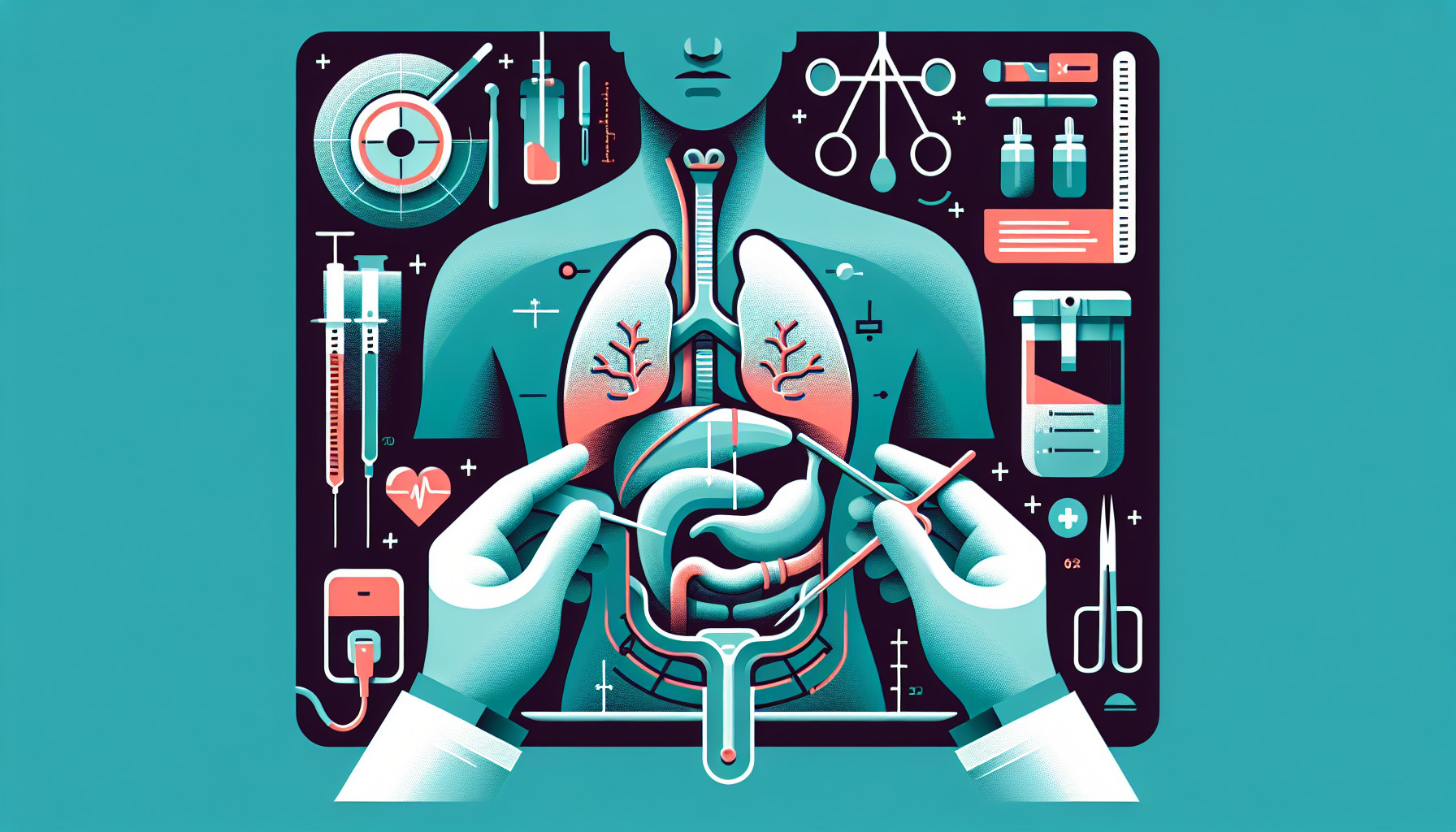Our Summary
This research paper discusses pancreas transplants as a treatment option for patients with type 1 diabetes and some patients with type 2 diabetes who also have advanced diabetic kidney disease. The paper suggests that the procedure is usually successful and could be even more beneficial if done earlier in the progression of the disease. This early intervention could potentially prevent or even undo the long-term health problems often caused by diabetes.
FAQs
- Who is eligible for a pancreas transplant?
- What is the success rate of pancreas transplant?
- Can a pancreas transplant prevent or reverse the long-term complications of diabetes?
Doctor’s Tip
One helpful tip a doctor might tell a patient about pancreas transplant is to carefully follow all post-transplant medication and lifestyle recommendations to ensure the best possible outcome and prevent rejection of the new organ. This includes taking immunosuppressant medications as prescribed, maintaining a healthy diet and exercise routine, and attending regular follow-up appointments with healthcare providers. It is also important to report any signs of infection or rejection to your healthcare team promptly.
Suitable For
Patients who are typically recommended for a pancreas transplant include:
Patients with type 1 diabetes who have difficulty controlling their blood sugar levels with insulin therapy and are experiencing severe hypoglycemia or hyperglycemia.
Patients with type 2 diabetes and advanced diabetic kidney disease who may benefit from a simultaneous pancreas-kidney transplant to improve overall kidney function.
Patients with type 1 diabetes who have complications such as diabetic retinopathy, neuropathy, or cardiovascular disease that are not responding to traditional treatments.
Patients who have had a previous kidney transplant and are experiencing complications related to diabetes.
Patients who have a history of severe hypoglycemic episodes that have caused significant impairment in their quality of life.
It is important for patients to undergo a thorough evaluation by a transplant team to determine if they are suitable candidates for a pancreas transplant. Factors such as overall health, age, and willingness to adhere to post-transplant medications and lifestyle changes will also be taken into consideration.
Timeline
Before the pancreas transplant:
- Patient is evaluated by a transplant team to determine eligibility for the procedure.
- Patient undergoes extensive testing to assess their overall health and suitability for surgery.
- Patient is placed on a waiting list for a suitable donor pancreas.
- Patient may need to undergo dialysis if they have advanced kidney disease.
- Patient continues to manage their diabetes through insulin therapy and other treatments.
After the pancreas transplant:
- Patient undergoes surgery to receive the donor pancreas.
- Patient is closely monitored in the hospital for complications and to ensure the new pancreas is functioning properly.
- Patient may experience side effects from the surgery and immunosuppressant medications.
- Patient gradually transitions off of insulin therapy as the new pancreas begins to produce insulin.
- Patient undergoes regular follow-up appointments with their transplant team to monitor their progress and adjust medications as needed.
- Patient may need to make lifestyle changes to maintain the health of their transplanted pancreas, such as following a healthy diet and exercising regularly.
- Patient may experience improved blood sugar control and quality of life as a result of the transplant.
What to Ask Your Doctor
- Am I a candidate for a pancreas transplant?
- What are the risks and potential complications associated with a pancreas transplant?
- How long is the recovery process after a pancreas transplant?
- What is the success rate of pancreas transplants at your facility?
- How will a pancreas transplant affect my diabetes management and overall health?
- Are there any lifestyle changes I should make before or after the transplant?
- How long will I need to take immunosuppressant medication after the transplant?
- What follow-up care will be required after the transplant?
- Are there any alternative treatment options to consider before proceeding with a pancreas transplant?
- How will a pancreas transplant impact my quality of life in the long term?
Reference
Authors: Kerr HR, Hatipoglu B, Krishnamurthi V. Journal: Cleve Clin J Med. 2015 Nov;82(11):738-44. doi: 10.3949/ccjm.82a.14090. PMID: 26540324
